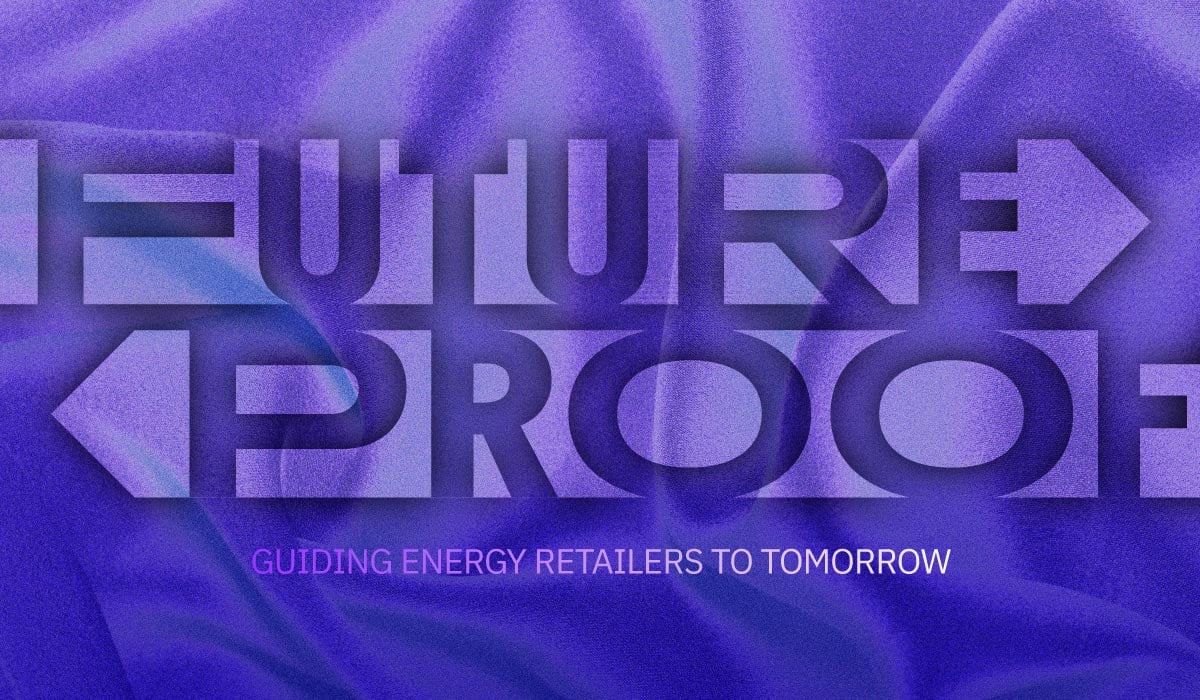Jessica Venning-Bryan | 2 April 2023


The energy sector is creating a future that will look quite different than it does today. Where the energy supply chain was traditionally linear - with value moving from producer to distributor to retailer and the end consumer, consumers are now producers through the likes of solar, and energy is becoming increasingly decentralised. There’s a race to innovate in spaces such as virtual power plants, virtual solar, app ecosystems, and of course renewables and decarbonisation. And all this change needs to happen whilst maintaining profitability and shareholder returns.
Needless to say, energy retailers are being faced with mounting pressure and stacked agendas. And no doubt, one of the biggest rocks is what direction they need to travel to future proof their businesses in an industry that is rapidly shifting around them.
As a business that partners with energy companies to help them mobilise their visions, Flux has a unique insight into the shifts happening within the sector and what energy retailers can do to remain competitive, future-focused, and profitable in this evolving landscape.
If there’s one thing we can all be certain of, it’s change. There are all the normal external factors that drive change - economic, environmental, regulatory, and geopolitical. But there are also new change catalysts, some of which are more visible such as technology, and others that are harder to predict, such as disruptor companies coming to market. Either way, having an energy retail business that is not just geared for change but also embraces it is really the only way forward.
If I could sum up how energy retailers are reshaping their businesses in a few words, it would be flexibility, relevance, and speed. My advice is to make ‘change’ a strategy. Identify and embrace a new business model by holistically reviewing your organisation from top to bottom, including how you make decisions, develop and deliver products, and operate.
What does this look like? Well, for most retailers, it’s a transformation that encompasses people, processes, and technology. It’s about creating an agile business that is adaptable to change, whether driven by external forces, or internal decisions. Shifting to a culture that encourages innovation, experimentation, and taking calculated risks. A culture that rewards creativity and initiative, celebrates successes, but also learns from failures. An exec team that drives the required shifts across the business and creates a business model that supports flexibility. And yes, technology is a crucial enabler of all these things, which I’ll talk to in my next point.
As technologists, we observe a lot of energy businesses completely hamstrung by their legacy systems, which have become a major impediment to not only innovation, but also day-to-day business operations. And we’ve heard countless reasons why replacing legacy fills execs with trepidation. If you look at the definition of ‘legacy’ with respect to technology, it sums up why there is still so much legacy tech in place in the energy sector - ‘software or hardware that has been superseded but is difficult to replace due to its wide use’.
Technology systems of previous years are cumbersome beasts. They usually aren’t cloud-based, have high customisation requirements, are rigid and cannot be changed or adapted easily, and infiltrate an entire tech stack. Modern technology is the opposite - designed for configurability, rapid and widespread integration, adaptable, updatable, modular, and can include smarts such as artificial intelligence and machine learning. This is what’s needed to design and execute new business models, and drive innovation at the core of your business. It’s also a baseline requirement to deliver and accurately bill the energy products needed today.
Don’t be afraid to sunset your legacy systems. Modern technology vendors have vast experience in migrating even the most complex of tech stacks onto cloud native, contemporary platforms. The team at Flux have moved hundreds of thousands of connections to our platform with less than 20 customer enquiries over the course of the transition. It is doable, and the benefits you will reap will be huge. And this leads me to my final point…
The great thing about collaboration is the transfer of knowledge, experience, and skills. Lean on your suppliers and partners, collaborate with organisations you are aligned with, and harness the collective knowledge within all your peer companies to identify new opportunities and develop innovative solutions.
The future is never the result of one person or organisation, it’s a collective effort. The same can be said for future proofing a business - there’s a lot of expertise to be tapped into both inside and outside of your organisation. Harness this to your advantage every step of the way.
The energy sector is on the brink of substantial change. This will come in many forms - regulatory, environment, technological, societal, and more. Whether you’re right at the beginning of your transformation journey, or have a clear vision and need to get it mobilised, Flux is here to support you. Reach out to our team to find out how.
Flux Federation connects those who make, move, and sell energy, equipping organisations in the sector with the power to drive change. Where ability to adapt to market shifts is vital, innovation in products and services is expected, and shareholder returns are imperative, Flux’s next generation software sits at the heart of energy businesses driving success by enabling management of greater complexity, reducing cost to serve, and delivering new capability at speed.
We’re not just here to deliver great software, we’re here to mobilise visionary companies leading the transition towards the future of energy.

Sign up for the latest updates in technology, changes, regulations, and new energy products from Flux.